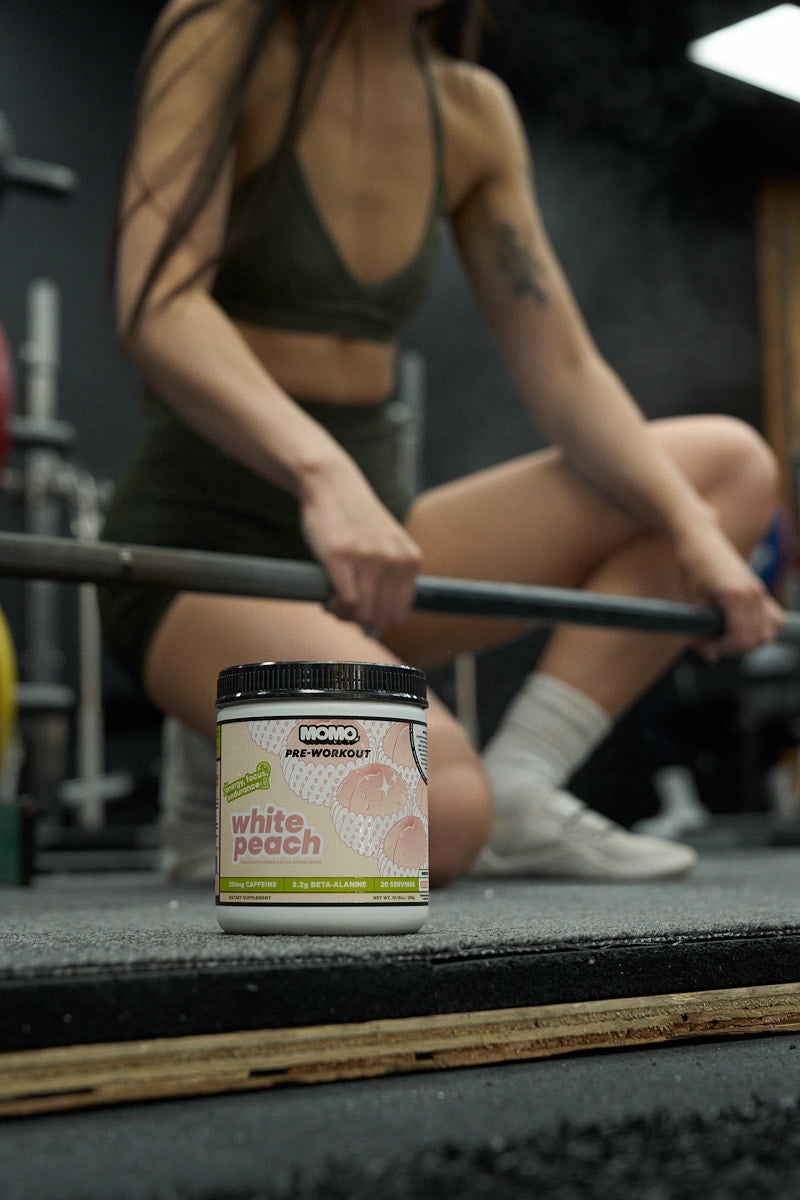7 minute read
How Much Protein Should I Eat Everyday?
You've probably heard people say "make sure you're hitting your protein!" or "eat a high protein diet to build muscle", but how much protein is that exactly? Let me save you this 7 minute read by giving you the answer right here: eat 1 gram of protein per pound of your goal body weight.
Examples:
- I weigh 120lbs and want to remain 120lbs. I will eat 120g protein everyday
- I weigh 200lbs and wants to lose 20lbs. I will eat 180g protein everyday
This may seem like an oversimplification, but if you hit this protein goal everyday, you're going to see results! While you technically could go a little lower at .7g per pound of goal body weight, I find it more effective to aim for the higher 1 gram range in case you fall short; if you miss a day, you’ll at least land within the optimal range. For most people, eating more than 1 gram per pound may not give much additional benefits and might trouble your digestion, so you can stick to 1 gram. Eating this amount is enough to provide your body with the necessary building blocks to repair and grow muscle tissue which is vital for maintaining a healthy metabolism, managing blood sugar, and balancing your hormones.
You may be thinking: "I feel like I need a more specific amount for my goal."
While there may be small variances on how much people may need depending on their goals, I'll explain in more detail why this amount of protein is ideal for a majority of people.
👇 pick which statement you identify with the most:
“i'm happy with my weight and/or want to build and maintain muscle”
If you're trying to maintain your current weight and the muscle you’ve built or want to continue building muscle and strength, aim for .8-1 gram per pound of your current weight. I find it more effective to aim for the higher 1 gram range in case you fall short. And if you miss, you’ll at least land within the range!
“i want to gain weight.”
If you’re looking to gain weight, especially muscle, you’ll want to increase your protein intake to support muscle growth. Aim for 1 gram of protein per pound of your goal weight. This will give your body the necessary building blocks to repair and grow muscle tissue. Along with a calorie surplus (more than you’re eating at maintenance), focusing on whole food protein sources paired with strength training will help you gain healthy weight while minimizing fat gain.
“i want to lose weight”
If you're overweight and looking to lose fat, aim for 1 gram protein per pound of your goal weight. It's better to use your goal weight to calculate your protein intake rather than total body weight, to avoid excessive caloric intake while also building and maintaining muscle. If you’re new to tracking or have never focused much on protein before, start with a lower number to build consistency and gradually increase as you get more comfortable.
If you cycle through bulks and cuts (going through muscle building phases while eating more calories and then eating in a caloric deficit to lose fat and reveal your muscle), you'll especially benefit hitting that 1 gram mark to help preserve muscle while you're low on calories.
“i’m over 40, do i need to eat differently?”
The older we get, the more important protein becomes! Like I mentioned earlier, we naturally lose muscle over time - but eating high protein helps slow that down. As we age, strength, mobility, and bone density become that much more important for our overall health and quality of life (source). Muscle contributes to all those factors - it isn’t just for aesthetics!
“i'm an athlete”
If you’re an athlete, you’ll benefit from hitting that 1 gram mark to help keep up with the demand of performance, recovery, and muscle maintenance for your sport.
🍴 now let's talk about actually eating this food:
“what kinds of foods should I eat?”
It’s best to get your protein from whole foods like meat, fish, dairy, eggs, and legumes. They’re generally better than processed foods like protein bars, processed meats, and protein-enriched snacks because they provide not only high-quality protein but also essential nutrients like vitamins, minerals, and healthy fats that processed protein sources often lack. That isn’t to say to not drink protein shakes at all, but to use them as a supplement if you’re finding it difficult to meet your protein targets or are running short at the end of the day.
"how do i make sure i'm on track?”
When you’ve never tracked your protein before, it can definitely feel daunting! I remember when I first started tracking my protein I embarrassingly discovered I was eating a lot less protein than I thought I was. Eating a yogurt cup for breakfast and a chicken thigh for dinner wasn’t cutting it. Most people overestimate how much protein they're actually eating, so it's important to track! Try these three steps to start tracking to make sure you're actually hitting your protein:
1. Download a free calorie tracking app
2. Input your protein source while you cook or before eating each meal (so you don’t forget after). If you’re cooking your own meals, weigh the protein for most accurate input and to learn about portion/serving sizes
3. Aim for 80 grams per day as a starting point and gradually increase weekly from there until you hit your goal protein intake
“tracking is a trigger for me”
No worries! While tracking makes things easier, it definitely isn’t the end-all-be-all solution. Here are some other options you can try:
-
Add a whole food protein source to each meal and eat it first. If you’re already doing that, just add a little more next time
- Ex. If you’re already having eggs, add an extra one. If you’re making a sandwich, add in another slice of meat
- Add in a protein shake sometime during the day - right after your workouts or with breakfast is a good way to stay consistent
- Track only your grams of protein, not calories
- Swap out a low-protein snack for something with more protein like greek yogurt, cottage cheese, jerky, protein shakes, or a protein bar
“what if i eat more than 1g?”
For most people, eating more than 1 gram per pound may not give you extra benefits and may negatively affect your digestion, so you can stick to 1 gram. If you're consistently hitting that 1 gram mark but have difficulty with digestion, bring your intake down a bit until you feel comfortable. Don't worry, you should still be within that .7g-1g window!
tl;dr: how much protein you should eat depends on your goals, but the general rule is 1 gram per pound of your goal body weight. Whether you're aiming to maintain, build muscle, or lose weight, focusing on whole food protein sources and gradually increasing your intake will help you stay consistent and meet your targets. Remember, it's not about perfection - it's about making consistent progress and finding a routine that works for you!
written by: ivy, co-founder of momo®



